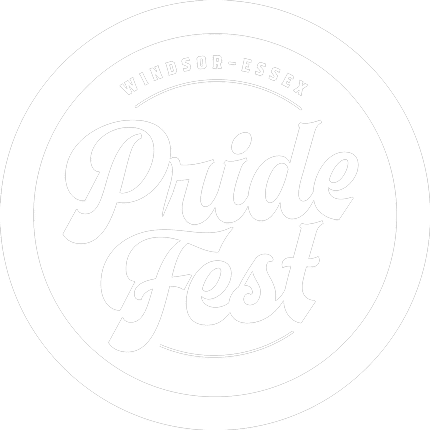‘Started as protest’: Pride Fest launches with celebration of Windsor’s queer history
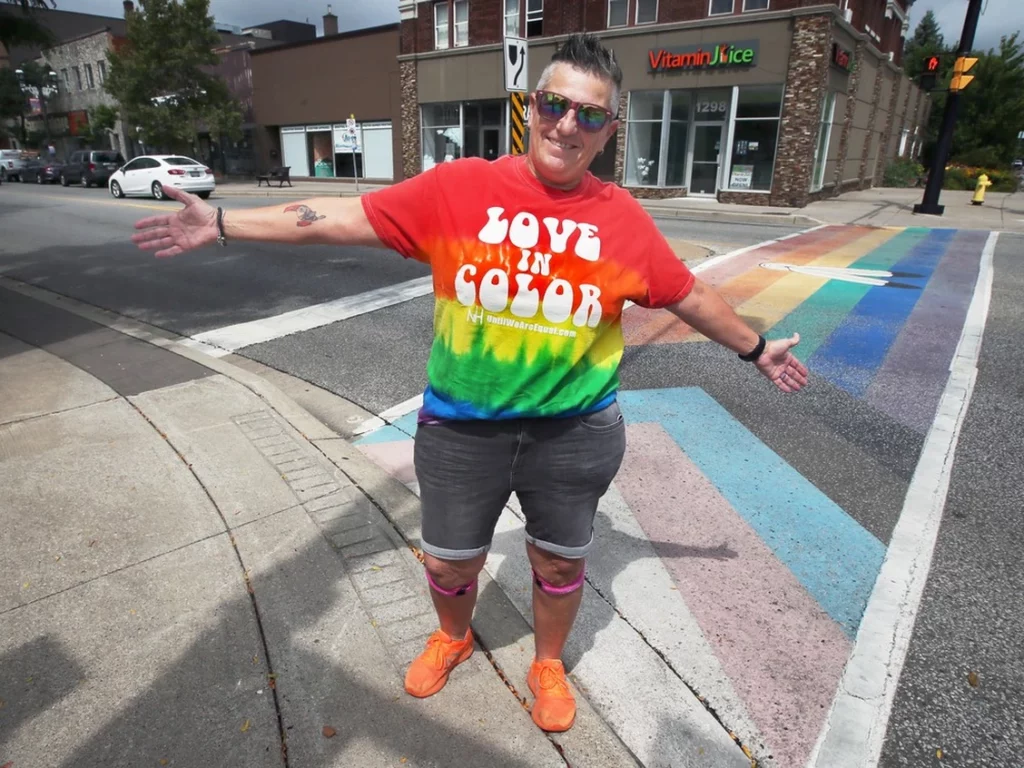
By Millar Holmes-Hill, Windsor Star
As Windsor’s Pride Fest launches into a 10-day celebration of diversity with a city hall flag-raising Friday afternoon (Aug. 2), organizers emphasize the need of understanding its history.
“I can’t emphasize this enough to the younger generations coming up,” said Windsor Essex Pride Fest president Wendi Nicholson. “They need to learn the history because they’ve missed the fight.
“There’s been a lot of hard work and hard times.”
Windsor’s queer community has never been more visible, but another local advocate says the next step forward is for the city to support a more open recognition of its history.
“Our history has been stolen from us or made invisible for different reasons — laws, prejudice, and hatred,” said Walter Cassidy, educator-in-residence at the Canadian Museum for Human Rights who conducts research into the Windsor-Essex gay community.
“Pride is about giving visibility to that historic element that was denied to us.”
The 2SLGBTQIA+ community faced significant challenges in gaining equal rights and overcoming discrimination but with Windsor-Essex Pride Fest starting Friday (Aug. 2), there’s lots to celebrate.
What is the earliest record of queer history in Windsor?
Windsor’s documented queer history dates back to the 1800s, with Canada’s first-ever criminal conviction for homosexual sex.
In 1842 at Fort Malden, two soldiers, Samuel Moore, 39, and Irish labourer Patrick Kelly, 27, were discovered being intimate.
They were tried for sodomy at the Essex County Court House, now Mackenzie Hall, in Sandwich. Homosexual wasn’t a word yet and it wouldn’t become one for another 50 years.
“That event has been in the history books in Canada for years, but most don’t know it happened here,” said Cassidy, who is also a Walkerville Collegiate Institute teacher and chair of the Windsor/Essex Rainbow Alliance.
“We have no historical reference to that. There’s nothing at Fort Malden or Mackenzie Hall. We have nothing on a permanent level that acknowledges any of our history.”
Former MPP Ted Bounsall (NDP — Windsor-Sandwich) brought forward a private member’s bill in the provincial legislature in 1974 to include sexual orientation under the Ontario Human Rights Code. Although it was defeated, it was the first bill of its kind in Ontario.
The first gay rights protest for employment discrimination in Windsor was held on Oct. 22, 1977.
According to Cassidy’s Windsor-Essex 2SLGBTQIA+ timeline, a group of 24 people demonstrated in front of a government building before marching along Main Street (now Ottawa Street) and the former Market Square.
On March 14, 1977, Windsor council adopted a resolution prohibiting discrimination against city employees based on sexual orientation. Windsor was the third city in the country — and the first smaller city — to do so after Toronto and Ottawa.
Various other Windsor-Essex rallies demanding equal rights over the years helped create better treatment for those previously marginalized over their sexuality.
“That’s something to be really proud of,” Cassidy told the Star. “We have some major events on a local, provincial, federal and international level.”
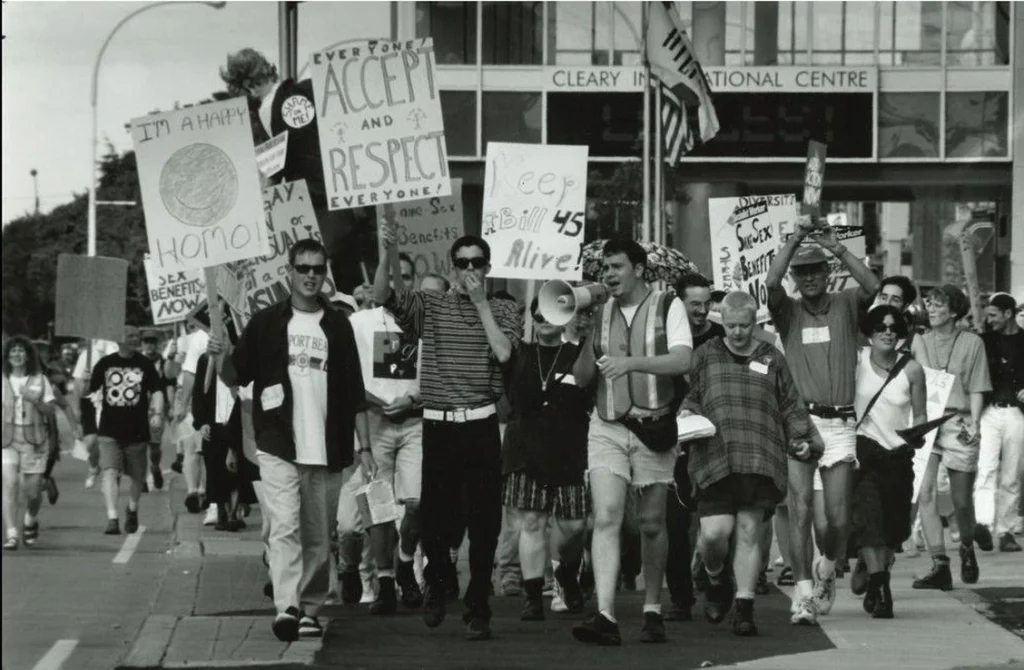
Sarah Carrol, the first local woman to publicly come out as transgender, was elected to the Windsor West Reform Party board of directors in 1992. Soon after coming out, Cassidy said she moved to Vancouver because of death threats from some of her family and the community at large.
“There are so many voices that still need to be discovered,” Cassidy said at the time. “Especially voices of the Indigenous, Black, Asian and Muslim 2SLGBTQIA+ community.
“Their voices deserve to be heard and celebrated.”
Carrol died of complications due to AIDS in 1997.
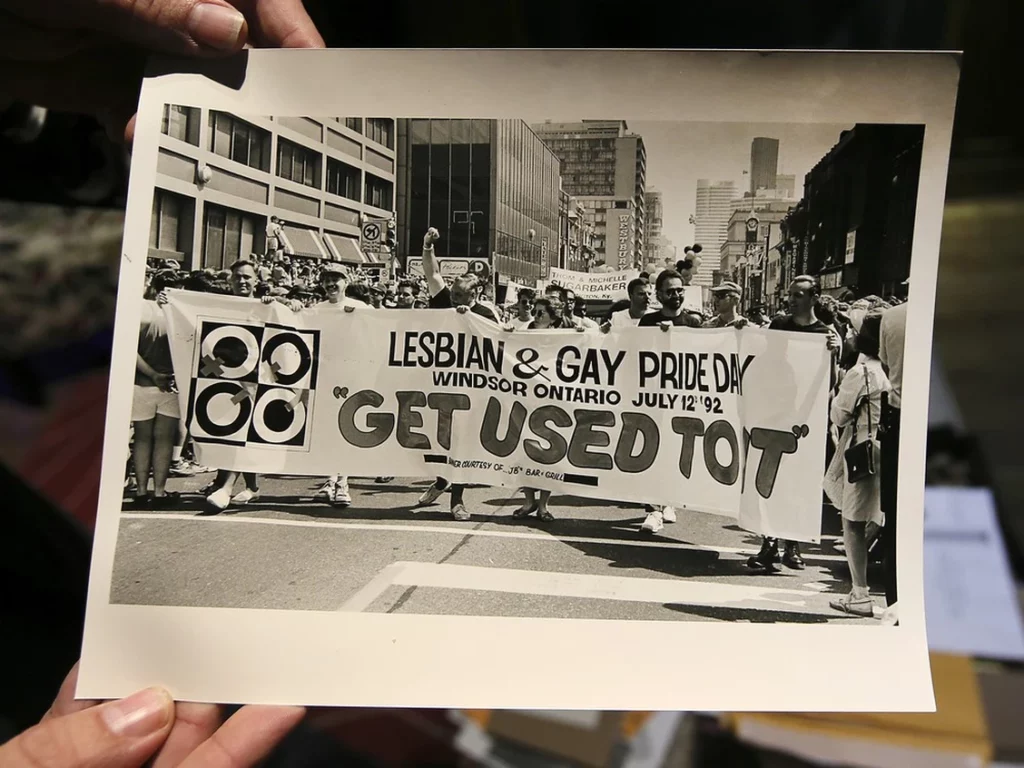
Raising awareness
In 1987, the first AIDS Awareness Week was created in Windsor-Essex. In 1988, the AIDS Committee of Windsor, now known as Pozitive Pathways located at 511 Pelissier St., was incorporated.
The first reported person in Canada to die from AIDS, before the epidemic even had a name, was Windsor resident Bill Kovinsky.
In historical records and government websites, he is referred to simply as a case from March 1982 — the first time his death was chronicled in a medical report.
There was no name or recognition — just a number. Kovinsky died at the age of 43.
Kevin Brown was the first Windsorite to come out publicly about having AIDS. Although he did not live in Windsor, he would come back to visit his family. Brown died in 1989.
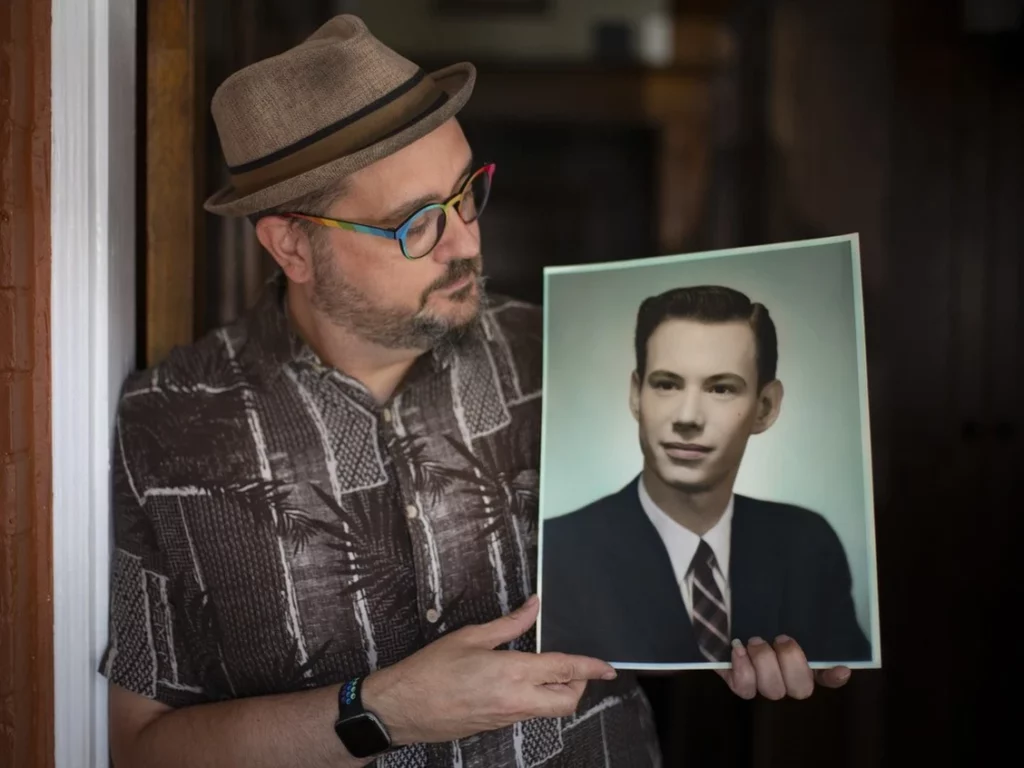
Activism
Windsor has a long history of activism within the 2SLGBTQIA+ community.
Jim Monk was one of the early members of the first gay activist organizations in Windsor. It started in 1972.
According to Cassidy, Monk was part of a group who fought the Windsor Star when the paper refused to print an ad for a community dance in 1973, arguing the ad “exploited sex and was in bad taste.”
The dance was simply titled the “Gay Dance.” The Star lost the suit.
Monk also helped struggling queers in Windsor by setting up a phone line, which could be found by looking up the word “gay” in the white pages.
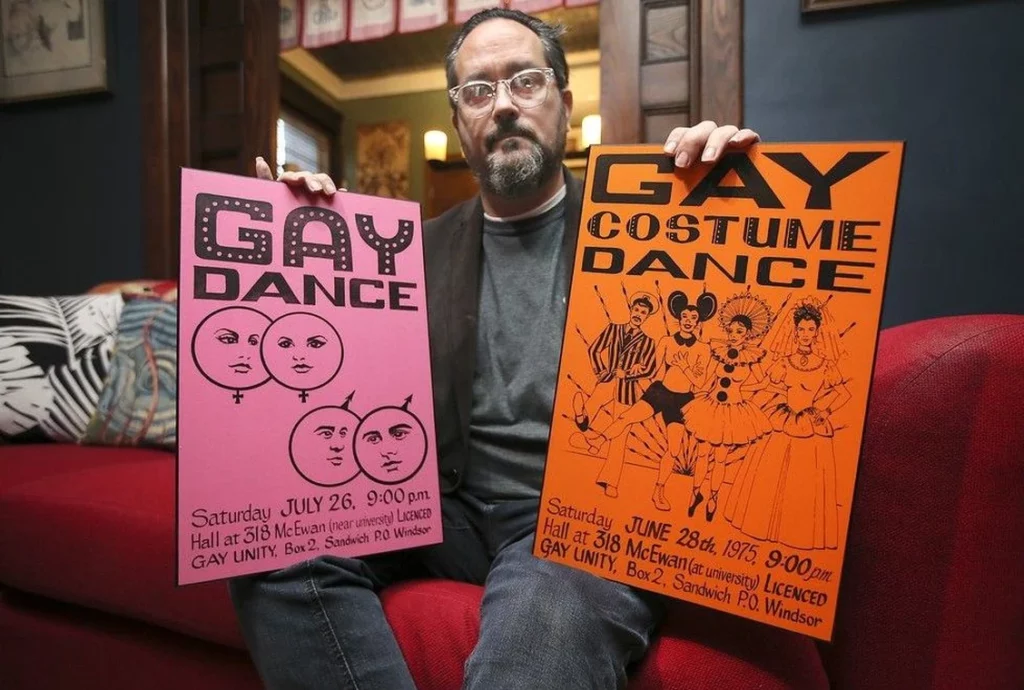
What is Pride?
Pride is a celebration of people coming together to celebrate how far 2SLGBTQIA+ rights have come and acknowledge there’s still work to do.
The month-long global celebration began in the United States with Gay Pride Week in June 1970. It marked the first anniversary of the violent raid on New York’s Stonewall Inn on June 28, 1969.
A turning point in the fight for LGBTQ+ rights in Canada was the Toronto bathhouse raids in 1981, but Cassidy said the first gay bathhouse to be raided in Canada was in Windsor.
Etna’s Steam Bath at 563 Brant St., in Windsor was raided in 1964. A total of nine men from Windsor, Michigan, and Ohio were charged as “found-ins.”
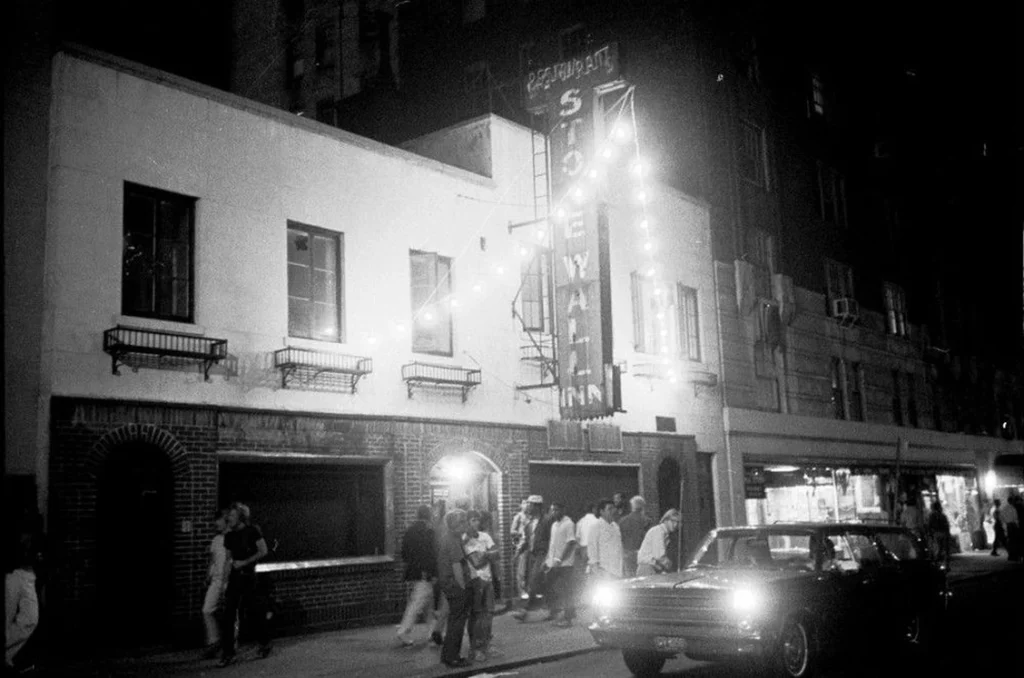
Why does Windsor-Essex celebrate Pride in August?
Pride Month is typically celebrated in June, but the timing of celebrations can vary, with some occurring after the start of summer.
Windsor’s August celebration occurs close to the We Demand Rally, Canada’s first large-scale gay rights demonstration, held in Ottawa on Aug. 28, 1971.
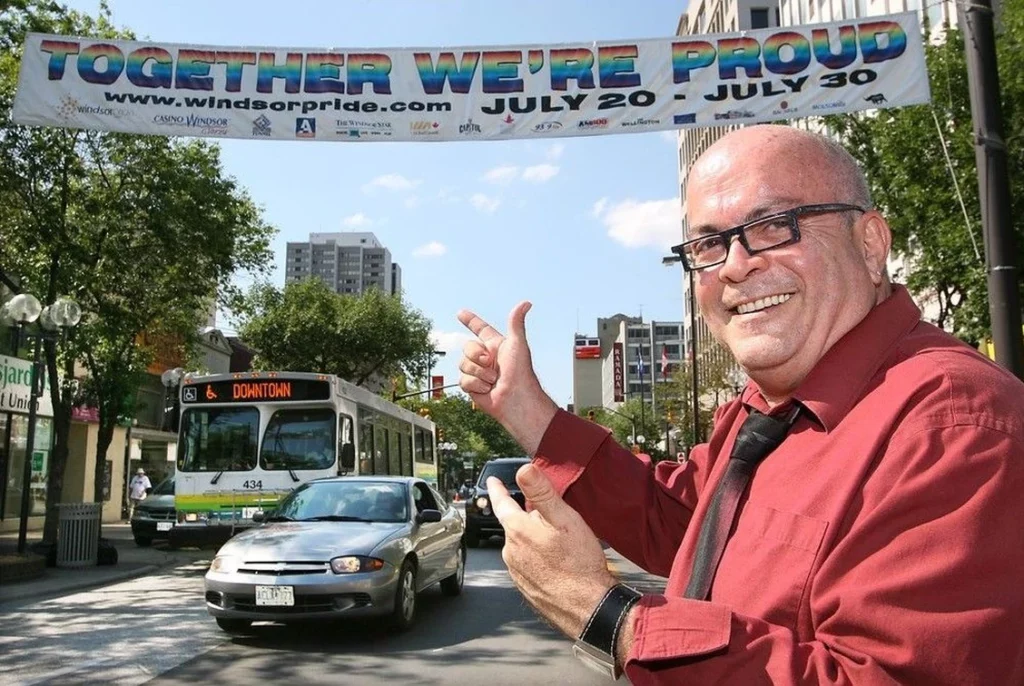
When did Pride start in Windsor-Essex?
Windsor Pride was founded in 1992 and held its first festival that year at JB’s on Wyandotte Street East at the current location of Kildare House pub.
The festival has been held at several locations across the city, including the former Windsor Stadium, Charles Clark Square, Ojibway Park, and the riverfront Festival Plaza.
“It grows every year,” Nicholson said. “It shows in our sponsorship, it shows in the amount of youth and allies coming out every year.”
In 2021, Windsor-Essex Pride Fest moved to Lanspeary Park, its current location. This year will mark the festival’s 32nd year in Windsor.
“I’m in awe every year to see the amount of people that come out,” Nicholson told the Star.
What is the progressive flag?
The progressive flag — which features the traditional rainbow stripes, alongside black, brown, light blue, pink and white — signifies the LGBTQ+ community’s evolving commitment to inclusivity.
The additional colours represent people of colour and the trans community.
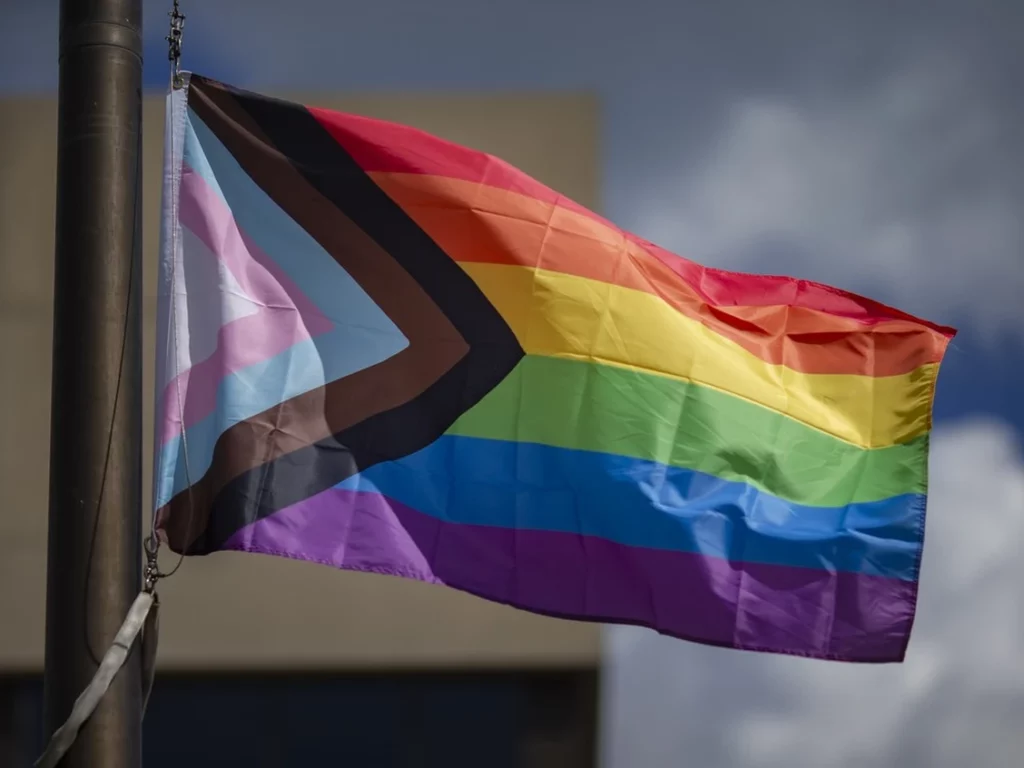
Windsor-Essex Pride Fest 2024
To mark the official start of this year’s Windsor-Essex Pride Fest, a flag raising takes place Friday (Aug. 2) at 1 p.m. at City Hall Square in downtown Windsor.
A Pride Shabbat Dinner will follow at 5:30 p.m. at the Windsor Jewish Community Centre. Tickets are $18, but if cost is a barrier, residents can contact Joe Schnayer at [email protected].
Residents can join 93.9 Virgin Radio’s Hannah and Jonny for a drag lunch at Bull & Barrel Urban Saloon on Sunday from 12-2:30 p.m. Performances by Liquorice and Epoxy. Tickets are $30 and include a choice of menu items.
A two-hour guided bus tour of 2SLGBTQAI+ history in Windsor-Essex takes place August 6 at 7 p.m. Tickets are $10 and capacity is limited.
The Run for Rocky starts at 10 a.m. on Saturday, August 10, at Dieppe Gardens on Windsor’s downtown riverfront. A post-run party follows at 11:30 a.m. at Lanspeary Park.
Named after the late Rocky Campana of Windsor, this charitable fitness event has supported and promoted the region’s 2SLGBTQIA+ community since 2013.
RuPaul’s Drag Race Season 9 contestant and All Stars Season 4 winner Trinity the Tuck headlines Queens of Pride on August 10 at Lanspeary Park from 8 p.m. to 12 a.m.
Tickets are $20, or $40 for VIP admission which includes preferred seating, a signed poster and a photo with the headline entertainer.
The region’s Pride Parade — a tradition since 1992 — happens Sunday, Aug. 11 at 11 a.m. along Ottawa Street, starting at Argyle Road and proceeding to Langlois Avenue. All are welcome to line the street and fly their rainbow flags.
For more information about the 2SLGBTQIA+ timeline or Windsor-Essex Pride Fest, including a complete schedule of events, visit wepridefest.com.
